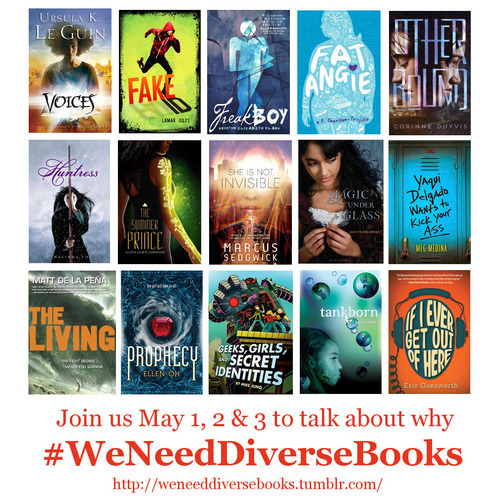As has been reported at
BookRiot, BookCon -- the Saturday of BookExpo, geared towards readers -- has announced a number of guest authors that have one thing in common: they are all white.
As Rebecca Joines Schinsky writes, "
First came the report that one of BookCon’s main features, a panel of the rock stars of kid lit, was comprised entirely of white male writers. . . .Then this morning, after Entertainment Weekly announced that John Green will also speak at BookCon, the people of Twitter went looking for the entire BookCon line-up. Lo and behold, it also has a remarkable diversity problem. As in: there is none."
Why does the make up of the authors at BookCon -- or, for that matter, at any event -- matter?
Here's something I learned early on, when putting together booklists and displays. It's something I think most people who assemble lists or organize events figure out pretty early on: check yourself and your work product. Make sure what you've put together is balanced, a true representation. In other words, if you sit back and see something is all white, or all male, or -- you get the picture -- you need to go back and do it again.
Why does it matter?
It matters because it looks like the message sent here is that the only authors who will get readers to buy tickets are white authors. And I refuse to believe that.
It matters because it looks like the default setting in reading is white. And while I reluctantly acknowledge that is true for some, I think those of us involved in the reading world need to push back against it. And one of those ways is not presenting all white booklists and panelists.
It matters because panels sell books. As someone who has had the good fortune to attend many a book event over the past several years -- from small to big -- I can attest that an author being on a panel makes me want to read their book. So the exposure by being on a panel? It matters.
This isn't asking for popular, well-known authors to step down. This isn't about not having popular authors. It's about everyone being aware and doing what they can. So, yes, it's on the organizers to look at who they are inviting.. And it's on the publishers to look at who they are promoting and sending to events, so that some authors go because their publishers pay and others can only go if they have the money to pay their own expenses. And it's on the authors to ask about who else is on their panels. And yes, it's on readers to be aware and attend those events that reflect the diverse world we live in.
Diversity isn't someone else's problem. It's not pointing fingers at others. It's looking in the mirror and seeing our role in the problem. And doing something about it.
Amazon Affiliate. If you click from here to Amazon and buy something, I receive a percentage of the purchase price.
© Elizabeth Burns of
A Chair, A Fireplace & A Tea Cozy




